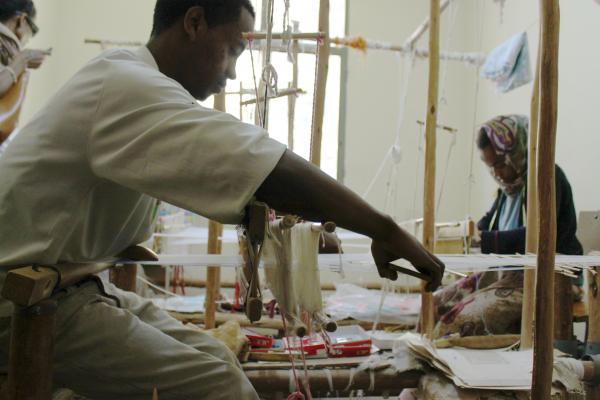When I think of weavers, what comes to my mind are the ladies in the back of the knitting store in my Southern California hometown, the ones who hang out on weekend afternoons with their handlooms – weaving cloth shawls, blankets, or the occasional modern tapestry.
Here, weaving is, by and large, a pastime. Some would call it an art form. The ladies in the back of the knitting shop are craft weavers. We might consider them "artisans" and laud them for mastering the truly ancient craft.
In the West, machines do most of the commercial weaving, not people. In Ethiopia, and elsewhere in the developing world, handloom weaving is most often an occupation for men and one that isn't usually heralded for its artistry. Weaving isn’t a prestigious job and, by and large, those who weave are the working poor.
Read the Full Article

